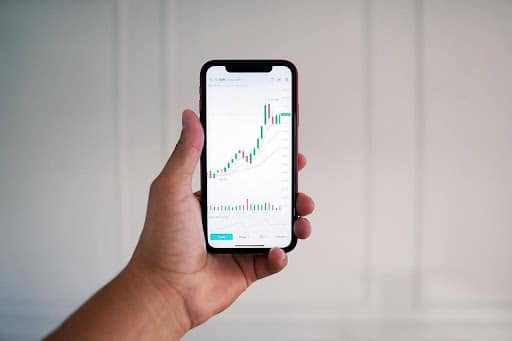In Kenya’s rapidly evolving financial landscape, selecting the right forex broker is paramount for traders seeking to maximize their potential. With a growing list of forex brokers in Kenya, traders must employ advanced selection techniques to ensure they align with brokers that support their strategies and enhance their trading success. This guide delves into the key factors that experienced traders should consider when navigating Kenya’s forex market.
Understanding the Regulatory Landscape in Kenya
Before diving into the technical aspects of broker selection, it’s crucial to understand Kenya’s regulatory environment for forex trading.
- Capital Markets Authority (CMA): The CMA oversees Kenya’s forex trading to protect traders and investors. Working with a CMA-regulated broker ensures compliance with local laws and offers some protection against unethical practices.
- Safeguarding Client Funds: CMA-regulated brokers are typically required to maintain segregated accounts, ensuring traders’ funds remain separate from the broker’s assets.
- Trust and Security: Kenyan regulations aim to promote transparency and client protection, making CMA-regulated brokers more reliable choices for advanced traders.
Essential Broker Qualities for Advanced Kenyan Traders
Experienced traders in Kenya should prioritize specific broker features tailored to enhance their trading experience. These elements provide a foundation for success in a competitive and fluctuating market.
1. Execution Speed and Reliability
In Kenya’s forex market, where rapid fluctuations can present both risks and opportunities, execution speed is crucial.
- Low Latency Execution: Opt for brokers that provide low-latency execution, ideally those with servers closer to major financial hubs.
- Order Reliability: Advanced traders should choose brokers with a reputation for minimal order slippage and requotes, especially during high-volatility periods.
2. Advanced Trading Platforms and Tools
An efficient trading platform is a cornerstone of successful trading. Platforms offering comprehensive analysis tools and customization can significantly enhance decision-making.
- MetaTrader 4/5 and cTrader: These platforms are popular for their advanced charting tools, automated trading capabilities, and extensive customization.
- Third-Party Integrations: For traders looking to integrate algorithmic strategies or external software, check for compatibility with third-party systems.
- Real-Time Data and Custom Indicators: Platforms with access to real-time data and customizable indicators can help experienced traders fine-tune strategies for optimal results.
Evaluating Fee Structures and Account Types
Kenya-based forex traders should assess broker fee structures and account options closely, as these can substantially impact profitability.
1. Transparent Spreads and Commission Rates
- Fixed vs. Variable Spreads: Fixed spreads offer cost consistency, beneficial during high volatility, while variable spreads may reduce costs during stable periods.
- Commission-Based Accounts: Some brokers offer accounts with lower spreads and commission fees, which can be advantageous for high-frequency traders.
2. Leverage and Margin Requirements
Understanding leverage and margin is essential for risk management in forex trading, particularly in high-volatility markets.
- Customized Leverage Options: Look for brokers offering leverage that aligns with your trading strategy. High leverage can amplify gains but also increases risks.
- Margin Call Protocols: Verify brokers’ margin call procedures, as these dictate how positions are managed when equity falls below required levels.
Safety of Funds and Account Security
Protecting your funds and personal information should be a priority, especially in an increasingly digital trading environment.
- Segregated Accounts: As mentioned earlier, brokers offering segregated accounts help ensure that traders’ funds are protected even if the broker faces financial issues.
- Data Security Measures: Look for brokers that invest in cybersecurity, such as SSL encryption and two-factor authentication (2FA), to protect against unauthorized access.
Customer Support and Educational Resources
Even experienced traders can benefit from quality customer support and access to educational resources.
- 24/5 Customer Support: Opt for brokers that offer round-the-clock support to assist you in case of technical or account-related issues.
- Webinars, Market Analysis, and Research: Advanced-level educational resources tailored to the Kenyan market can keep traders updated on economic trends and trading strategies.
Top Techniques for Vetting Forex Brokers in Kenya
Vetting brokers thoroughly can prevent potential issues and enhance the overall trading experience. Here are some best practices for assessing brokers:
1. Broker Reviews and Ratings
Check for recent reviews and ratings from other advanced Kenyan traders, focusing on key aspects like trading costs, reliability, and support.
2. Demo Accounts for Strategy Testing
Leverage demo accounts to test brokers’ platforms and determine how well they support your strategies. Assess execution speed, platform reliability, and user interface before committing to a live account.
3. Direct Comparison of Broker Offerings
Utilize comparison tools or manually assess brokers’ features, fees, and support options to make informed decisions. Consider factors like trade execution speed, minimum deposits, and customer service quality.
Optimizing Your Trading with the Right Broker in Kenya
Once you’ve selected a broker, optimizing your setup and strategies can further enhance your trading performance.
- Customized Trading Algorithms: Many advanced traders rely on customized trading algorithms. Ensure your broker supports algorithmic trading and API integrations for seamless strategy execution.
- Economic Calendars and News Feeds: Stay informed on Kenyan and global economic news that could impact the forex market, as well as Kenya-specific updates.
- Risk Management Tools: Leverage advanced risk management tools such as stop-loss orders and trailing stops to protect against adverse market movements.
Conclusion
Choosing the right broker among the numerous forex brokers in Kenya is pivotal for advanced traders aiming to maximize returns. A broker with robust security, cutting-edge platforms, competitive fee structures, and regulatory compliance can significantly enhance trading performance in Kenya’s forex market. By employing these advanced selection techniques, traders can make informed choices that align with their specific goals and risk tolerance, setting a strong foundation for success in Kenya’s dynamic forex environment.




